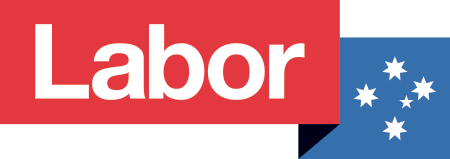Ms BYRNES (Cunningham) (11:23): The National Disability Insurance Scheme is one of the great Labor social reforms. It has fundamentally changed the lives of people with a disability for the better, giving people the opportunity to participate in society in a way that they never could before. Quality allied health professionals play an absolutely crucial role in achieving these goals. In my electorate, in the Illawarra, we are incredibly lucky to have a strong, well-established network of quality, passionate and dedicated professionals working hard on this every single day. For them, the work they do is more than just a job. It is a reflection of their compassion, commitment and strong desire to improve the lives of others. I want to start by acknowledging this work and thanking everyone in my community working so hard to improve the lives of others—helping children to walk and talk, helping to reduce pain and discomfort and giving people the tools and the power to engage socially and economically. It is such valuable work.
I also want to give a very special mention to the Illawarra Disability Alliance. The IDA is an incredibly passionate group of local NDIS-registered not-for-profit organisations who want to support the success and inclusion of people with disability in our community. They are experienced professionals who have dedicated their lives to working in this field—true experts. So I was concerned when they and other local providers started voicing objections to the recent NDIA pricing review. These providers work in the system every single day. They understand its unique challenges. And their voices need to be heard in this process.
As a government, we have not shied away from the fact that the NDIS needs to undergo changes to become fairer and sustainable in a way that works for everyone. There is always going to be debate across the sector about how we achieve this. What is absolutely essential during this process is strong engagement with participants and with providers every step of the way.
As an MP, I have a very firm expectation that the National Disability Insurance Agency undertakes proper and respectful consultation before making decisions that affect the lives of people with a disability and those working hard to support them. It is for this reason that I have engaged in conversation with the NDIA since these changes were announced, to ensure that consultation with groups like the Illawarra Disability Alliance is occurring in a full and frank way. I wrote to the NDIA to express the concerns of my constituents and urged further consultation with local providers as a matter of urgency. Regional areas like mine simply will not have a large enough pool of providers to draw from if some of these long-established organisations exit the scheme.
I would really like to thank the minister's office, and the NDIA's Deputy Chief Executive Officer for partners, providers and home and living, Penelope McKay, for meeting with some of my local providers last week to hear directly from them about the impact of these changes. I also want to thank our amazing local providers who have engaged with me on this issue.
I was reassured to learn that the NDIA will soon be putting out a three-year work plan to help providers better prepare for upcoming changes and engage in consultation more easily. I was also really pleased that the deputy CEO took the time to listen to the feedback that my local providers had, and I hope that this will see engagement with these providers continue into the future. Following the meeting, I have been working hard to ensure that my local providers have a seat at the table when the NDIA is consulting with industry through the agency's quarterly Industry Chief Executive Forum.
The government also last week invested $45 million in pilot programs to support providers and gain valuable data to inform future approaches to therapy pricing. This is welcome news.
The NDIA is an independent agency and decisions are made by the NDIA board. However, this does not mean that the agency has no accountability to its participants and providers or to government. We are all trying to get the best outcomes for people with disability in our community. We want them to thrive and get the vital support that they need in a way that works for them. To achieve this, we absolutely must have real and open dialogue between participants, providers and the NDIA. Being open to feedback and collaboration means better results for participants and the sustainability of the NDIS. Once again, I want to thank everyone who is working hard, across the industry, to improve the lives of people with a disability.


